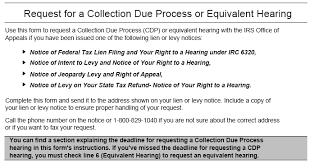 On July 31, 2019 we posted Senate OKs Tax Treaties With Spain, Japan, Switzerland & Luxembourg, where we discussed that the U.S. Senate on July 17, 2019 approved three bilateral tax treaties with Switzerland, Luxembourg and Japan, one day after approving a treaty with Spain.
On July 31, 2019 we posted Senate OKs Tax Treaties With Spain, Japan, Switzerland & Luxembourg, where we discussed that the U.S. Senate on July 17, 2019 approved three bilateral tax treaties with Switzerland, Luxembourg and Japan, one day after approving a treaty with Spain.Now according to Law360, amendments to the U.S.-Switzerland tax treaty providing for mandatory arbitration of double-tax cases and exchanges of information, and eliminating the distinction between tax evasion and tax fraud, entered into force on September 20, 2019, the Swiss government said in a press release.
 The exchange of documents between the two countries marked the end of a decade-long wait for final ratification, according to statements from Switzerland and the U.S. The press release from the U.S. also noted that a treaty with Luxembourg had entered into force.
The exchange of documents between the two countries marked the end of a decade-long wait for final ratification, according to statements from Switzerland and the U.S. The press release from the U.S. also noted that a treaty with Luxembourg had entered into force.
The instruments of ratification of the protocol of amendment on taxation of income were exchanged by Daniela Stoffel, Swiss state secretary for international finance, and by the U.S. ambassador to Switzerland, Edward McMullen.
It said that the two countries had in fact signed the protocol of amendment on Sept. 23, 2009, with the aim of revising the 1996 double tax agreement. The Swiss approved the protocol on June 18, 2010, but the U.S. Senate, which is responsible for ratification in the U.S., didn't approve the measure until July 17 of this year. The Swiss treaty passed by a 95-2 vote in the U.S. Senate, ending years of blockage led by Sen. Rand Paul, R-Ky.
Made As Of Friday, and That Requests For Financial
Accounts Must Involve Cases That Have Occurred Since
The Signing Of The Protocol Of Amendment,
Meaning Sept. 23, 2009.
The mandatory arbitration clause will ensure that “double taxation is avoided even in cases where the competent authorities cannot reach agreement in the mutual agreement procedure,” the statement said. The Swiss release said that the entry into force of the protocol paves the way for additional revision of the double-taxation agreement.
“The aim of such a revision is to make further improvements, which take account of developments since the DTA was signed in 1996,” it said.
Have an International Tax Problem?
Read more at: Tax Times blog










